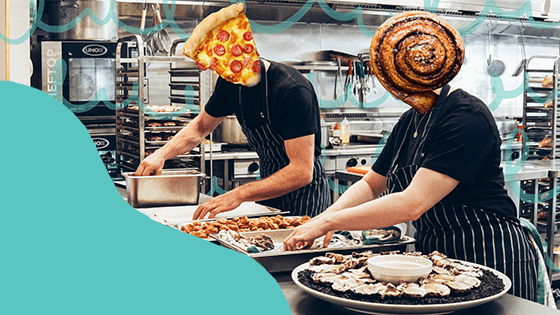Designed to give small food businesses a competitive advantage when entering or continuing in a local marketplace, a kitchen incubator — a.k.a. a culinary incubator —is an affordable, certified kitchen space that’s used for food preparation.
Typically, renters or members — ranging from food entrepreneurs to chefs, food truck owners, bakers and caters — use a shared kitchen by the hour or day to make fare. Affording a place to prepare food while meeting regulatory compliance, an incubator kitchen lets you avoid spending capital to build or lease your own facility.
Unlike a shared-use commissary kitchen that simply offers kitchen rental, a kitchen incubator tends to offer additional support services, such as legal aid, business development training, product packaging, label printing and distribution. Given the FDA and state regulations prohibit the sale of food that is not produced in a licensed facility, a kitchen incubator helps mitigate start-up costs, all while providing a nurturing environment that can help a small business grow and thrive within its community.
How an incubator kitchen works
A low-cost, full-service kitchen space, members of a kitchen incubator often have 24/7 access to commercial equipment and the building’s production workspace, as well as cold and dry storage. Adding to that is industry-specific business expertise, support and guidance.
A way to avoid the debt of expensive equipment or the need to sign a long-term lease, kitchen incubator programs usually charge an application fee, along with a reasonable monthly program fee and hourly rate for kitchen use. Sometimes extra-specialized equipment can be rented at an additional cost.
The benefits of using an incubator kitchen
A kitchen incubator may offer free business coaching, low-cost business classes, on-demand training, and assistance with complex registration and licensing processes. It may even provide food truck parking with plug-in capabilities. Separate from the amenities, a shared-space approach offers the chance to learn and network with other food entrepreneurs.
Culinary start-ups are unlikely to receive venture capital or bank financing given there are razor-thin profit margins in the highly competitive food market. Expensive to break into, the food industry is also complex. A kitchen incubator offers a supportive environment that allows you to tweak and fine-tune dishes until they’re just right — not to mention economically viable. That can be an ideal set-up for caterers, food truck owners or prepared meal services, not to mention bakers, personal chefs, street vendors and artisans producing specialty food.
Whether you’re a start-up food businesses in need of your first facility, a home-based businesses looking to legalize and grow your business, an established business wanting to grow or reach a new market or an established business needing a one-off rental space, an incubator may provide the added boost you need for your business concept to take flight.
Tying it Together — Your POS
No matter where your food prep takes place, you’ll need a system to take orders and payments. A comprehensive POS system can do that and so much more. Table Needs taks a plug and play approach to its services, with options that allow for flexible, affordable entry that grows with your business. Just need a digital menu with online ordering and the ability to streamline purchases? No problem. You’ll also be able to update your menu of offerings easily, in one place, in real time, across platforms.
We’d love to hear about your situation and help develop an option that works for your business.
Follow us for tips, news, and tutorials to run a successful small restaurant.






